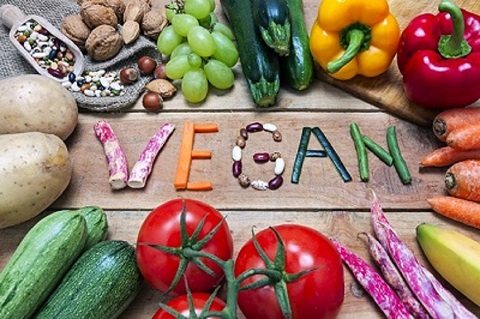Vegan Products has gained significant popularity not only as a dietary choice but as a lifestyle that aligns with environmental and ethical values. Understanding the essentials of vegan nutrition is crucial for ensuring a balanced diet that supports overall health and wellbeing.
Introduction
Embracing veganism involves abstaining from consuming animal products, including meat, dairy, eggs, and sometimes even honey. This dietary choice requires careful planning to ensure adequate intake of essential nutrients that are typically obtained from animal sources.
What is Vegan Nutrition?
Vegan nutrition revolves around consuming plant-based foods that exclude any form of animal-derived ingredients. It focuses on whole grains, fruits, vegetables, nuts, seeds, and legumes as primary sources of nutrients.
Why Choose a Vegan Diet?
People choose vegan diets for various reasons, including ethical concerns regarding animal welfare, environmental sustainability, and potential health benefits such as lower cholesterol levels and reduced risk of heart disease.
Key Nutrients in Vegan Nutrition
Protein
Contrary to common misconceptions, vegans can obtain sufficient protein from sources like beans, lentils, tofu, and quinoa. Complementing different plant-based protein sources ensures adequate intake of essential amino acids.
Iron
Plant-based iron sources include spinach, lentils, chickpeas, and fortified cereals. Pairing iron-rich foods with vitamin C sources enhances iron absorption.
Calcium
Vegans can fulfill their calcium needs through fortified plant milk, leafy greens like kale and collard greens, and calcium-set tofu. Ensuring an adequate intake of calcium is essential for bone health.
Vitamin B12
Since vitamin B12 is primarily found in animal products, vegans should consider fortified foods like nutritional yeast or supplements to prevent deficiency.
Planning a Balanced Vegan Diet
Building Blocks of a Vegan Plate
A balanced vegan plate typically includes a variety of vegetables, fruits, whole grains, plant-based proteins, and healthy fats like avocado or nuts. Portion control and mindful eating contribute to a well-rounded diet.
Sample Vegan Meal Plan
A day in a vegan diet might start with oatmeal topped with berries and nuts, followed by a quinoa salad for lunch, and a dinner of tofu stir-fry with vegetables. Snacks could include hummus with carrot sticks or a fruit smoothie.
Vegan Sources of Essential Nutrients
Plant-Based Protein Sources
Legumes (beans, lentils), tofu, tempeh, edamame, and quinoa are excellent sources of plant-based protein that can be incorporated into various meals.
Iron-Rich Foods for Vegans
Incorporate spinach, lentils, fortified cereals, and pumpkin seeds into your diet to meet iron requirements. Cooking in cast iron pans can also boost iron intake.
Calcium in Vegan Foods
Opt for fortified plant milk, leafy greens such as bok choy and collard greens, and calcium-set tofu to ensure sufficient calcium intake for bone health.
Vitamin B12 Supplements for Vegans
Since vitamin B12 is essential for nerve function and red blood cell production, consider taking a daily supplement or consuming fortified foods like nutritional yeast.
Vegan Nutrition for Different Life Stages
Vegan Nutrition for Children
Careful planning is crucial to ensure that children receive adequate nutrients for growth and development, including protein, calcium, and iron.
Vegan Nutrition for Pregnant Women
Pregnant vegan women should pay attention to consuming foods rich in folate, iron, and omega-3 fatty acids. Prenatal supplements may be recommended to ensure optimal nutrition.
Vegan Nutrition for Athletes
Athletes following a vegan diet should focus on adequate protein intake to support muscle repair and recovery. Plant-based protein shakes and meals rich in carbohydrates and vitamins are beneficial.
Common Myths about Vegan Nutrition
Myth: Vegans Lack Protein
Truth: Plant-based sources like beans, lentils, and tofu provide ample protein when combined appropriately.
Myth: Vegan Diets are Deficient in Iron
Truth: Iron-rich plant foods and cooking techniques can help vegans meet their iron needs without animal products.
Myth: Vegan Diets Cannot Provide Enough Calcium
Truth: Calcium-fortified foods and certain plant foods like kale and fortified tofu can supply adequate calcium for vegans.
Myth: All Vegans Need Vitamin B12 Supplements
Truth: Since vitamin B12 is primarily found in animal products, vegans should consider fortified foods or supplements.
Health Benefits of a Vegan Diet
Reduced Risk of Chronic Diseases
Studies suggest that vegan diets may lower the risk of heart disease, hypertension, and type 2 diabetes due to reduced intake of saturated fats and cholesterol.
Improved Digestive Health
High fiber content in vegan diets promotes healthy digestion and may reduce the risk of constipation and diverticular disease.
Potential Weight Loss Benefits
Vegan diets tend to be lower in calories and saturated fats, which can contribute to weight loss and maintenance when combined with regular physical activity.
Challenges of Vegan Nutrition
Potential Nutrient Deficiencies
Vegan Food need to be vigilant about obtaining adequate amounts of vitamin B12, vitamin D, omega-3 fatty acids, iron, calcium, and protein through diet and supplements.
Social and Practical Challenges
Eating out or finding vegan options in social settings can be challenging, requiring planning and communication with restaurant staff or hosts.
Tips for Transitioning to a Vegan Diet
Gradual Transition vs. Immediate Change
Some find success in gradually reducing animal products, while others prefer a swift transition. Experiment to find what works best for you.
Seek Guidance from Nutrition Professionals
Consulting a registered dietitian can provide personalized advice and ensure that you’re meeting all your nutritional needs on a vegan diet.
Explore Vegan Alternatives to Favorite Foods
Discovering plant-based substitutes for dairy, meat, and eggs can make the transition to a vegan diet more enjoyable and sustainable.
Environmental Impact of Vegan Diets
Reduced Carbon Footprint
Animal agriculture contributes significantly to greenhouse gas emissions. Choosing a vegan diet can help reduce environmental impact and conserve resources.
Conservation of Water Resources
Producing plant-based foods typically requires less water than raising livestock, contributing to water conservation efforts.
Preservation of Biodiversity
Reducing demand for animal products can help preserve natural habitats and biodiversity threatened by deforestation and land degradation.
This post was created with our nice and easy submission form. Create your post!





